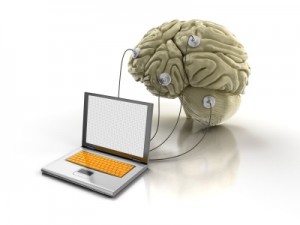Study: Working memory training can improve fluid intelligence
 Very interesting new study on computerized cognitive training (or brain training), well summarized in LA Times article Memory training improves intelligence in some children, report says. Quote:
Very interesting new study on computerized cognitive training (or brain training), well summarized in LA Times article Memory training improves intelligence in some children, report says. Quote:
The training program used by Jaeggi and co-workers focused on ramping up working memory: the ability to hold in mind a handful of information bits briefly, and to update them as needed. Cognitive scientists consider working memory a key component of intelligence. But they have long debated whether strengthening short-term memory capacity will boost a person’s overall intellectual function, and will do so even after the brain-training sessions are over.
It can, and it does, according to this new research, published in the Proceedings of the National Academy of Sciences.
The full study, Short-term and long-term benefits of cognitive training, is available here, and includes this crucial and often overlooked analysis:
We conclude that cognitive training can be effective and long-lasting, but that there are limiting factors that must be considered to evaluate the effects of this training, one of which is individual differences in training performance. We propose that future research should not investigate whether cognitive training works, but rather should determine what training regimens and what training conditions result in the best transfer effects, investigate the underlying neural and cognitive mechanisms, and finally, investigate for whom cognitive training is most useful.
To Learn More:
-> About the specific methodology deployed in study: read this interview with Michigan researcher Martin Buschkuehl
-> An example of real-life activity where working memory matters: read this study on working memory and math performance
-> Thoughtful brief essay by Torkel Klingberg based on his excellent book The Overflowing Brain: Information Overload and the Limits of Working Memory


